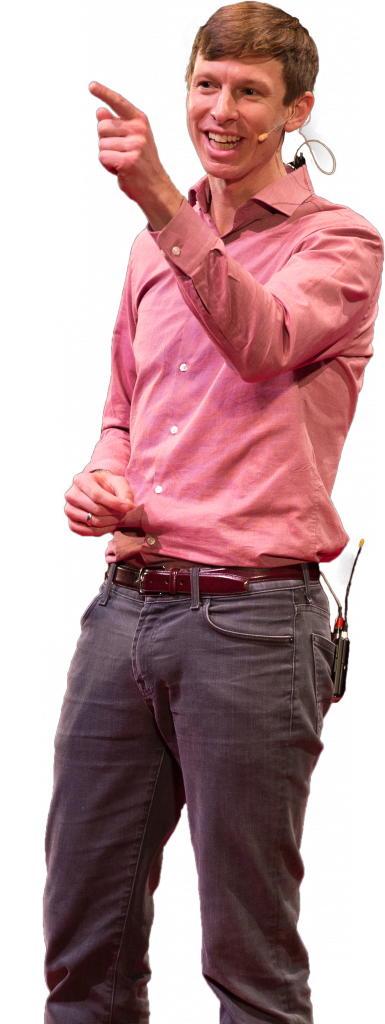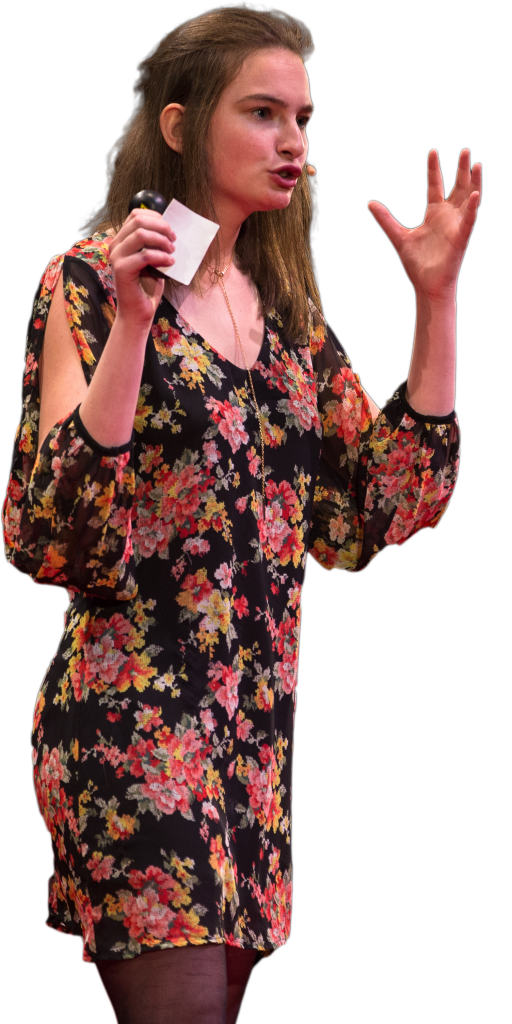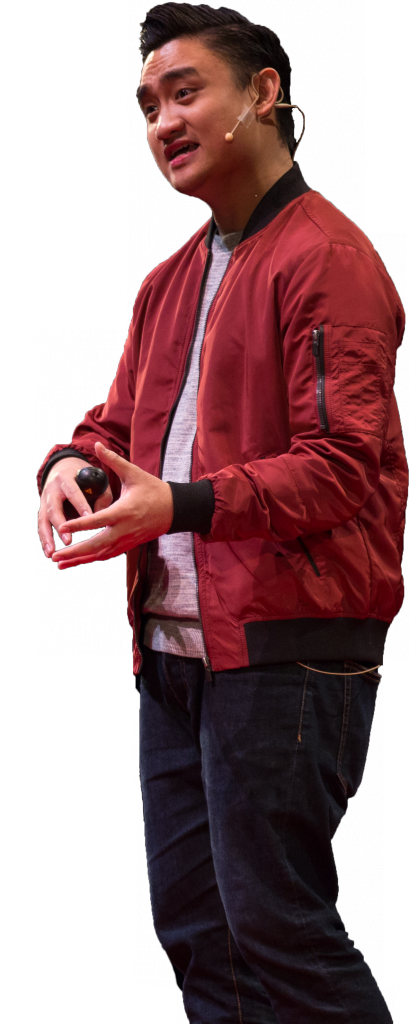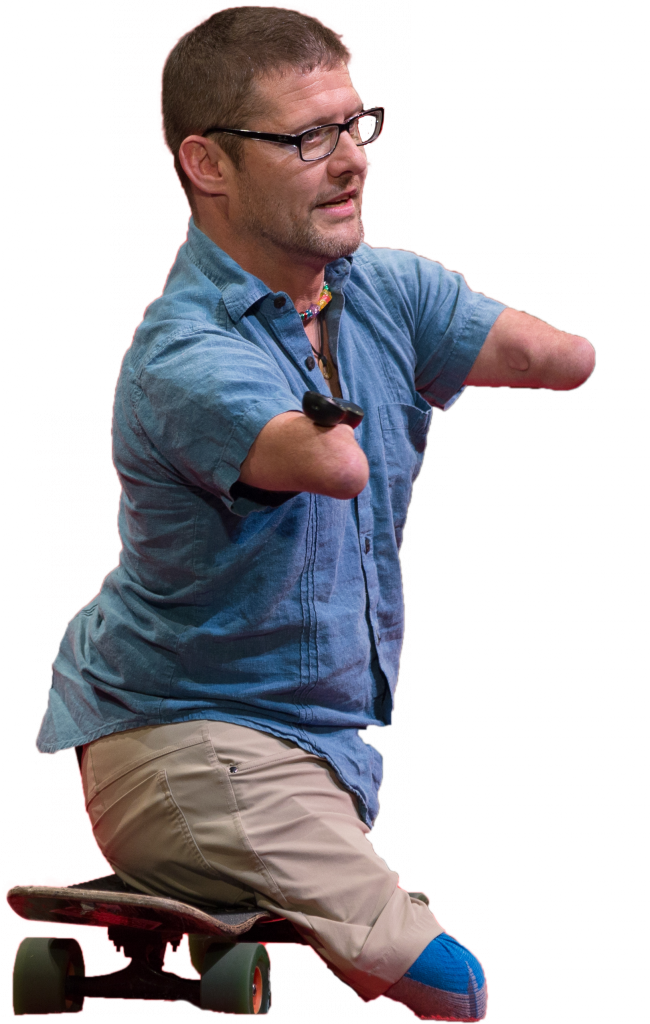For the seventh annual TEDxBinghamtonUniversity, speakers looked “Beyond the Canvas” by taking alternative views on various topics and urging the audience to not take life too seriously, dream small and travel.
The event took place in the Anderson Center’s Osterhout Concert Theater on Sunday afternoon and featured speakers from around the world who spoke about their different experiences within their respective fields of work.

Eric Butorac, a retired professional tennis player, spoke first about how setting small individual goals helped him accomplish many feats in his tennis career, including an appearence in the 2014 Australian Open.
Butorac said that having a mindset prepared by accomplishing smaller goals helped him feel more successful and helped him maintain a positive attitude throughout his career.
“For some people, big dreams do work well,” Butorac said. “But they paralyze others. For the realists out there, like me, small goals and achievable dreams are the key to a successful day. And enough of those days translates into one great life full of achievement.”
The next speaker was Ranier Maningding, the founder of “The Love Life of an Asian Guy,” a popular Facebook page where Maningding discusses various social issues such as racism and the stereotypes that occur in the dating world.
Maningding argued that because of technology and various social media outlets, racism appears to be more prevalent, however it actually just means the conversation surrounding activism and racism is increasing.
“When activism is accessible, when activism is inclusive, it is also incredibly effective,” Maningding said. “There’s absolutely no reason why you shouldn’t understand that racism exists and you shouldn’t be surprised or think that it just became popular.”

The student speaker this year was Mollie Teitelbaum, a senior double-majoring in philosophy and comparative literature. Teitelbaum spoke about peccadillos, the small personality aspects about people that others find to be annoying, such as talking too loudly.
She specifically spoke about a term she dubbed the “peccadillic implicit bias”. This term states that people have internal biases toward certain nuisances that lead them to react negatively, and Teitelbaum asked the audience to think about their own peccadillos.
”The traits and habits that bother us out of proportion don’t merit the unfair treatment that inevitably follows from peccadillic implicit biases,” Teitelbaum said. “Take a moment to consider your peccadillos, those things about you that might bother the person sitting next to you. Consider to what extent you have control over these things. If you wanted to stop doing them, would you?”
After a performance by the Black Dance Repertoire, Gunnar Garfors, a Norwegian media professional, spoke about what it was like to visit every country in the world and told the audience how rewarding traveling is.
“I’m not going to tell you where to go or which goals to follow, but please travel,” Garfors said. “It will really open your mind and you will learn a lot about yourself and other cultures as well. The only bad trip is the one you don’t go on.”

Cevin Soling, a writer and filmmaker, spoke after Garfors about the problems with compulsory education, or education mandated by law for children. He compared this type of schooling to being held captive by someone who told you that, in order to be free, you have to pass a test.
”You’re not going to read the works in an organic way where the content has any meaning for you,” Soling said. “You’re going to want to read them with an eye toward guessing what the supreme leader is going to ask you.”
BU alumna Ellyn Kaschak, ‘65, discussed her research on blind people and their perspectives on race and gender. Kaschak said that she found that blind people often try to “speak sighted language” but are unable to fully understand the stereotypical ways we view different genders and races.
“Having been blind since birth, they haven’t seen any of the cues that those of us who are sighted use to think about gender and think about race,” Kaschak said.

The final talk was given by Chris Koch, a motivational speaker who was born without arms and legs. He urged the audience to find the humor in all aspects of life and to maintain confidence in whatever they do.
“I’ve always said, ‘If you can’t laugh at life what can you laugh at?’ We take life far too seriously in my opinion,” Koch said. “Being able to laugh at any situation, whether it be a bad day at work or you’re just having a rough time, if you can slow it down and find the funny, it helps you get over it and makes life not so stressful.”
Elaine Lee, the senior director for TEDxBinghamtonUniversity and a senior majoring in accounting, said that TEDx is important because it brings different perspectives to the campus community.
“It’s a great way to share new ideas and it’s great to stay open-minded and to be able to bring so many diverse speakers to campus,” Lee said. “[To] let them see what’s out there beyond school itself is important to me, and is an important experience that everyone should take advantage of.”




